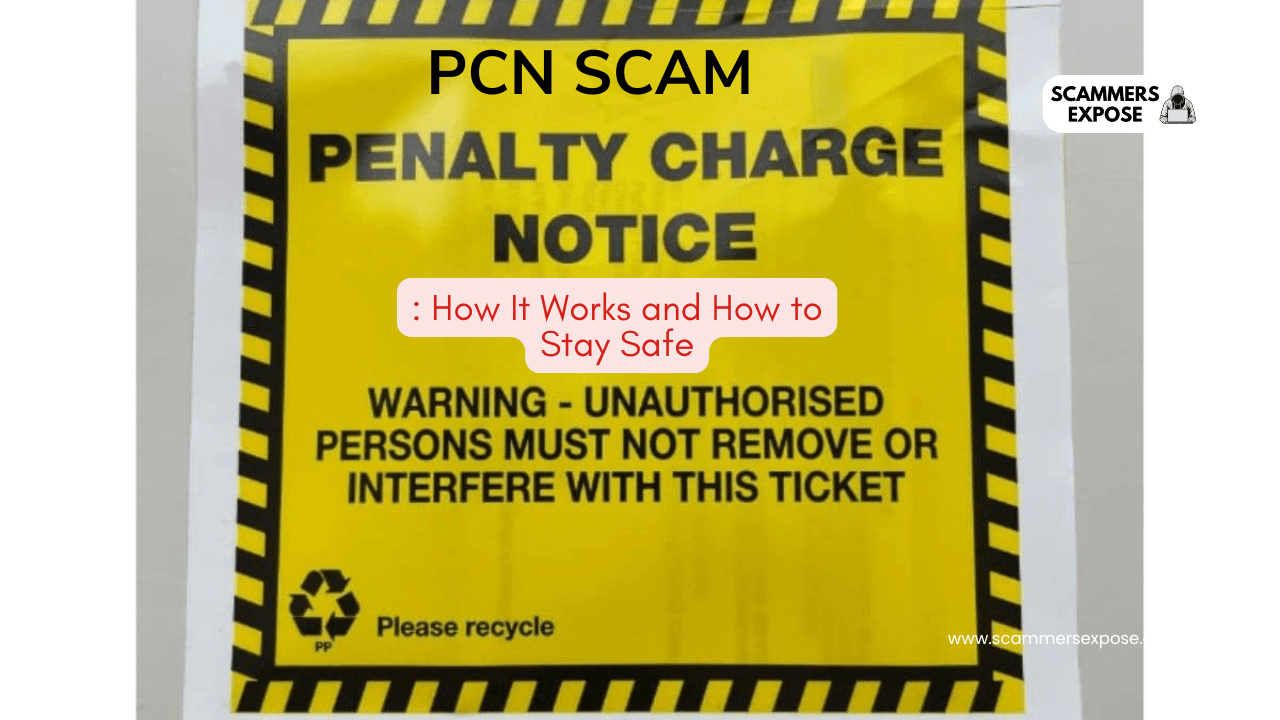The Jay Slater Scam has shocked many, as fraudsters continue to exploit this tragic event. From fake donation pages to fraudulent live streams of Jay Slater’s memorial, scammers are taking advantage of the public’s goodwill. This post delves into the methods scammers are using and provides essential tips to protect yourself from becoming a victim of this scam.
- The Rise of Scams Around Jay Slater’s Tragic Story
- Fake Live Streams Targeting Jay Slater’s Funeral
- How Scammers Exploit Tragedies for Profit
- Warning Signs of Scams Linked to Jay Slater
- Protecting Yourself From Online Memorial Scams
- Legitimate Channels for Supporting Jay Slater’s Family
- Common Scams Surrounding Memorial Services
The Rise of Scams Around Jay Slater’s Tragic Story
The tragic death of Jay Slater has led to a disturbing trend: scammers are using his story to deceive the public. Online scammers, posing as legitimate entities, have been targeting his grieving family and supporters with fake donation pages and fraudulent live streams.
Common Scams Linked to the Jay Slater Scam:
- Fake Live Streams: Fraudsters are offering false live streams of Jay Slater’s funeral, seeking donations in exchange.
- False Donation Pages: Scammers create pages claiming to collect funds for Jay’s family or charities, profiting from the public’s goodwill.
Why Scammers Target Emotional Events:
- High Emotion Factor: Scammers exploit emotions, especially during high-profile, tragic events like the passing of Jay Slater.
- Urgency for Donations: People want to help quickly, and fraudsters leverage this urgency to push fake donation links.
Preventing Falling Victim to the Jay Slater Scam:
- Verify Donation Channels: Always double-check the legitimacy of any donation page. The only official channels for supporting Jay Slater’s family are managed by LBT Global.
- Report Fake Accounts: If you see any suspicious live streams or donation requests tied to the Jay Slater Scam, report them immediately to protect others from being deceived.
Scams surrounding Jay Slater’s story are unfortunately becoming more common. Staying vigilant and recognizing these fraudulent activities can prevent falling victim to a Jay Slater scam.
Fake Live Streams Targeting Jay Slater’s Funeral
As the Jay Slater Scam evolves, scammers have started using fake live streams to trick people who want to pay their respects. These fraudulent streams are often linked to fake donation platforms and are meant to deceive vulnerable individuals who wish to support the Slater family.
Characteristics of Fake Jay Slater Funeral Live Streams:
- Non-Verified Sources: Fake streams are typically hosted on social media platforms or unknown websites.
- Donation Requests: Scammers ask for donations or “access fees” to watch the live stream, which is not legitimate.
- Emotional Appeal: The Jay Slater Scam preys on people’s emotions by claiming that proceeds will help the family.
How to Spot a Fake Jay Slater Scam Live Stream:
- Check Official Announcements: The family and LBT Global have confirmed no official live stream for Jay Slater’s funeral.
- Look for Verified Channels: Only trust information and live streams shared by recognized and verified platforms. Avoid clicking on random links.
- Report Suspicious Links: If you encounter fake live streams tied to the Jay Slater Scam, report them immediately to social media platforms or relevant authorities.
Fake live streams of Jay Slater’s funeral are part of an ongoing scam designed to exploit sympathizers. Recognizing and reporting these scams is crucial to protecting yourself and others from falling victim to the Jay Slater Scam.
How Scammers Exploit Tragedies for Profit
The Jay Slater Scam highlights how fraudsters manipulate public sympathy during times of grief. Scammers often use tragic events to take advantage of the emotional outpouring, creating fake channels and donation pages.
Tactics Used in the Jay Slater Scam:
- Fake Charity Pages: Scammers set up websites mimicking real charities, soliciting funds under false pretenses.
- Impersonating Family Members: Fraudsters may pretend to be relatives of Jay Slater, asking for direct donations.
- Manipulation of Social Media: Scams involving fake live streams or “updates” on platforms generate donations or clicks for profit.
Why the Jay Slater Scam Works:
- Emotional Vulnerability: Scammers exploit the public’s desire to help, using emotional triggers to encourage impulsive donations.
- Quick Setups: Online tools allow scammers to rapidly build convincing pages, increasing the effectiveness of the Jay Slater Scam.
By using these tactics, scammers manage to exploit well-meaning individuals, increasing their chances of profiting from tragic situations like the Jay Slater Scam.
Warning Signs of Scams Linked to Jay Slater
The Jay Slater Scam has evolved with fraudsters using deceptive techniques to exploit the tragedy surrounding Jay Slater’s death. Recognizing the warning signs of these scams is critical to avoiding becoming a victim. Scammers often take advantage of the public’s emotions, especially in sensitive situations like funerals or memorials.
Common Indicators of a Jay Slater Scam:
- Unverified Donation Requests: Scammers set up fake donation pages or crowdfunding platforms, claiming to support Jay Slater’s family. Always verify the authenticity of any donation request, particularly if it isn’t promoted by official sources like the Slater family or charities working with them.
- Suspicious Social Media Accounts: Fraudulent accounts may appear on social media platforms, posting emotional content about Jay Slater’s funeral or memorial services to encourage donations. These accounts typically lack verification or clear links to legitimate organizations.
- Fake Funeral Live Streams: One of the more disturbing elements of the Jay Slater Scam is the rise of fake live streams. Scammers claim to broadcast Jay Slater’s funeral, often charging fees for access or asking for donations during the stream. It’s important to know that the family has stated there will be no official live stream for Jay Slater’s funeral. Any page claiming to offer such a service is part of the scam.
- Urgent Appeals for Money: Fraudsters frequently use urgency to pressure people into donating. These appeals often claim that funds are needed immediately for funeral expenses or memorial costs. In the case of the Jay Slater Scam, many fraudulent requests were reported as asking for urgent donations, a tactic designed to bypass rational thinking.
How to Safeguard Against the Jay Slater Scam:
- Verify Donation Links: Always cross-check any donation page with official announcements from Jay Slater’s family or trusted charities. Only use links provided by trusted sources like LBT Global, the organization assisting the Slater family. Avoid donating through random links sent via social media or emails, as these are likely part of the Jay Slater Scam.
- Report Fake Accounts: If you come across any suspicious social media accounts or donation pages claiming to represent Jay Slater or his family, report them immediately. Social media platforms like Facebook and Instagram have systems in place to take down fake profiles quickly once they are flagged. The Jay Slater Scam has seen a rise in fake accounts, so your vigilance can help stop these scams.
- Look for Verified Organizations: One of the most reliable ways to avoid a Jay Slater Scam is by only donating through verified organizations that are clearly working with Jay’s family. LBT Global, for example, has been involved in removing fraudulent accounts and is a trusted resource for donations. Scammers often fail to create convincing websites or organizations, which is why looking for certifications and verified credentials is a must.
Recognizing Red Flags in the Jay Slater Scam:
- Poor Grammar and Formatting: Many scam pages lack the professionalism of legitimate organizations. Look out for poorly written content, missing contact information, or fake addresses. The Jay Slater Scam pages often display these telltale signs, making them easier to spot.
- Unusual Payment Methods: Scammers may request untraceable payment methods such as cryptocurrency, prepaid gift cards, or wire transfers. Always use secure, traceable payment methods when donating online, and avoid sending money through channels that seem unusual or risky.
The Jay Slater Scam continues to evolve as fraudsters exploit this tragedy. By recognizing these warning signs and taking steps to verify the authenticity of any donation or live stream, you can avoid falling victim to these fraudulent schemes. Stay alert and always verify before donating or interacting with content related to Jay Slater’s story.
Protecting Yourself From Online Memorial Scams
As the Jay Slater Scam demonstrates, scammers often exploit sensitive situations, particularly online memorials and funerals. Protecting yourself from these schemes requires vigilance and understanding of how they operate.
Key Steps to Protect Against the Jay Slater Scam:
- Verify Official Sources: Always check the legitimacy of donation pages, especially those tied to public figures like Jay Slater. The Jay Slater Scam involves fake fundraising pages and fraudulent memorial services. Ensure any donation link is shared by verified family members or organizations, such as LBT Global, which works directly with the Slater family.
- Avoid Clicking on Unsolicited Links: Scammers often share fake links via social media or email. Be wary of unfamiliar messages or random posts claiming to collect funds in the name of Jay Slater. Scams can come in various forms, including fake live streams of funerals or memorial services.
- Research Crowdfunding Pages: Many scammers exploit the public’s willingness to contribute by setting up fraudulent GoFundMe or similar pages. Before donating, confirm that the page is authentic. In cases related to the Jay Slater Scam, only donate through official channels promoted by the family or verified charities.
- Use Secure Payment Methods: Always donate through secure, traceable payment options like credit cards or trusted online payment platforms. Scammers often push for alternative payment methods like cryptocurrency or gift cards, which are harder to trace. This is a common tactic in many scams, including those tied to Jay Slater’s name.
Common Red Flags of the Jay Slater Scam:
- Emotional Appeals with Urgency: Scammers often use urgent emotional pleas to rush donations. In the case of the Jay Slater Scam, fraudsters may falsely claim that funds are urgently needed for funeral expenses. Be cautious when a donation request feels overly urgent or emotional without providing verifiable details.
- Inconsistent or Missing Information: Fake pages associated with the Jay Slater Scam often include inconsistent details or lack key information such as verified contact info. Check for red flags like poorly written content, misspellings, or vague details about how donations will be used.
- Fake Social Media Profiles: The Jay Slater Scam has seen a rise in fraudulent accounts pretending to be connected to Jay Slater’s family or official organizations. These accounts often push links to fake donation pages or ask for funds directly. Always check for verified badges or official confirmation before interacting with such profiles.
Reporting Suspicious Activity:
- Report Fake Accounts or Donation Pages: If you come across any suspicious profiles or donation pages tied to Jay Slater, report them immediately to the platform. Facebook, Instagram, and Twitter allow users to flag fraudulent accounts, which can help protect others from falling victim to the Jay Slater Scam.
- Alert Authorities: If you suspect you’ve encountered a fraudulent fundraising page or scam related to Jay Slater, report it to relevant authorities, including local consumer protection agencies or internet fraud departments. Scammers rely on anonymity, so raising awareness is essential.
Protecting Others from the Jay Slater Scam:
- Share Verified Information: Spread the word about official donation links and channels to support the family. This reduces the risk of well-meaning individuals falling prey to fake pages or the wider Jay Slater Scam.
- Educate Friends and Family: Let others know about the common tactics used in online memorial scams, especially regarding high-profile events like Jay Slater’s funeral. The more informed people are, the less effective these scams become.
The Jay Slater Scam is a clear example of how fraudsters exploit public emotions during tragedies. By staying vigilant, verifying information, and sharing legitimate resources, you can protect yourself and others from becoming victims of these online scams.
Legitimate Channels for Supporting Jay Slater’s Family
With the rise of the Jay Slater Scam, it’s essential to know the legitimate ways to support Jay Slater’s family. Scammers have exploited the tragedy by creating fake donation pages and live streams, so it’s critical to use only verified platforms for any support or contributions.
Official Fundraising Platforms:
- LBT Global: This organization has been directly supporting the Slater family. LBT Global has set up a legitimate donation page where funds can be safely directed to assist the family during this time. This is the most reliable way to contribute, avoiding any involvement in the Jay Slater Scam.
- Remembering Jay Fundraiser: This official donation page is part of LBT Global’s efforts, specifically created to help the Slater family. Scammers have tried to mimic this page, so always ensure you’re using the correct URL and source before making any donations.
How to Avoid Fake Channels in the Jay Slater Scam:
- Check for Verified Accounts: Whether donating through social media or other platforms, always ensure the account promoting the fundraiser is verified. The Jay Slater Scam has involved numerous fake accounts attempting to solicit funds. Verified badges or official endorsements from Jay Slater’s family can help ensure the legitimacy of the platform.
- Use Trusted Payment Methods: Only use secure payment methods like credit cards or PayPal when donating. Fraudsters involved in the Jay Slater Scam often request untraceable payment options like wire transfers or cryptocurrency. Secure payment channels help ensure your donations reach the intended recipient.
Report Suspicious Activity:
- Flag Fake Accounts: If you come across any suspicious pages or profiles claiming to represent Jay Slater’s family, report them to the respective platform immediately. The Jay Slater Scam has spread through social media, with scammers attempting to hijack the narrative to collect funds fraudulently. Reporting fake accounts helps limit their reach.
- Alert the Family or Charities: If you encounter potential scams, notifying the family or trusted organizations like LBT Global can help stop the spread of fraudulent activity. The Jay Slater Scam relies on anonymity and deception, so transparency and communication are essential.
Promoting Genuine Support for Jay Slater’s Family:
- Share Verified Fundraising Links: To combat the Jay Slater Scam, it’s important to share only verified links to official fundraising pages. This ensures that public goodwill is directed to legitimate sources, rather than to fraudulent accounts.
- Educate Your Network: Make sure friends and family are aware of the Jay Slater Scam and how to avoid it. By educating others, you reduce the chances of further donations falling into the hands of scammers.
Legitimate channels for supporting Jay Slater’s family are essential in the fight against scams. Verifying every donation link, using secure payment methods, and spreading awareness can help protect others from becoming victims of the Jay Slater Scam.
Common Scams Surrounding Memorial Services
The Jay Slater Scam serves as an example of how scammers exploit memorial services to deceive well-meaning individuals. Scammers use various tactics during memorial events to trick people into making fraudulent donations or participating in fake services.
Types of Scams Surrounding Memorial Services:
- Fake Donation Pages: Scammers create pages that mimic legitimate fundraising efforts, often asking for direct donations in the name of a deceased person. In the Jay Slater Scam, fake pages were set up to trick supporters into donating to fraudulent accounts.
- Imposter Social Media Accounts: Scammers frequently create fake profiles claiming to be connected to the deceased or their family. These accounts push fake donation links or promote fraudulent events like livestreams of memorial services. The Jay Slater Scam saw multiple fake profiles appear on social media.
- Fake Livestreams for Funeral Services: One of the most notable tactics in the Jay Slater Scam is the use of fraudulent live streams. Scammers claim to broadcast the funeral service, often asking for a fee or donation to view the stream. These scams are typically designed to take advantage of people who want to participate in the memorial from afar.
How to Avoid Memorial Service Scams:
- Verify the Source: Before donating or engaging with any memorial service, ensure that the information comes from verified accounts or direct family members. Official organizations like LBT Global have supported the Slater family, making them a reliable source for legitimate fundraising.
- Use Secure Payment Methods: Always use secure payment options like credit cards or trusted payment platforms. Scammers involved in the Jay Slater Scam often ask for untraceable payment methods, such as gift cards or wire transfers. Secure payments help protect against fraud and ensure your donation reaches the intended recipient.
- Report Suspicious Activity: If you come across any fake accounts, livestreams, or donation pages claiming to be related to a memorial service, report them immediately. The Jay Slater Scam has prompted many reports of fraudulent accounts, making it essential to flag any suspicious behavior to prevent further exploitation.
Red Flags to Watch for in Memorial Service Scams:
- Requests for Unusual Payment Methods: Scammers often ask for payments through less secure methods, such as cryptocurrencies or prepaid gift cards. In the Jay Slater Scam, fraudsters sought donations through these methods, making it difficult to trace funds.
- Overly Emotional Appeals: Many scammers play on emotions to rush individuals into donating. They might claim that the family urgently needs funds for funeral expenses or memorial arrangements. The Jay Slater Scam took advantage of public sympathy by pushing high-pressure tactics to collect donations quickly.
- Poorly Written Donation Requests: Scammers often create fake pages with spelling or grammatical errors, unclear information, or vague explanations about how the funds will be used. Many fraudulent pages tied to the Jay Slater Scam lacked professional quality, making it easier to identify them as scams.
Protecting Yourself and Others from Memorial Scams:
- Share Verified Information: If you find legitimate channels for supporting the family, such as verified fundraising pages, share this information with your network. This helps prevent others from falling victim to the Jay Slater Scam or similar fraudulent activities.
- Stay Informed About New Scams: Memorial service scams are constantly evolving. Stay updated on how fraudsters are exploiting tragic events like the Jay Slater Scam, and take precautions to avoid these tactics.
Memorial service scams are an unfortunate reality, but by staying vigilant and following these steps, you can protect yourself from falling victim to schemes like the Jay Slater Scam.
Visit our news section to stay updated with the latest developments in the case. For more insights into financial fraud and investor protection, visit Scammers Expose.










Leave a Reply